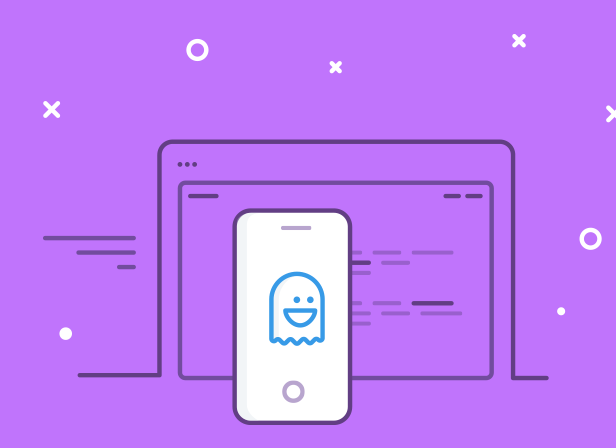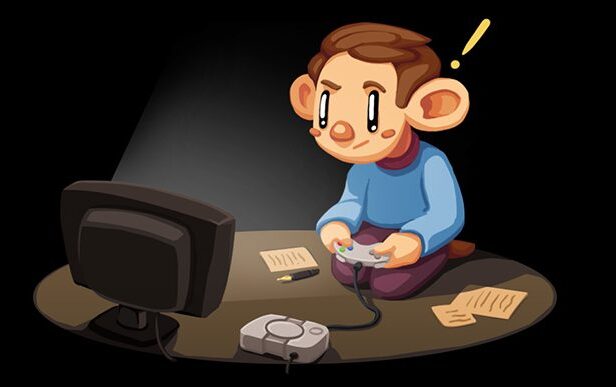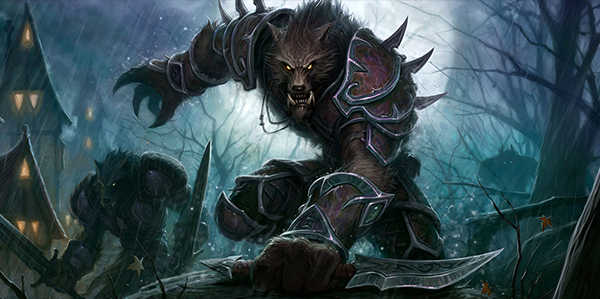- Join User Analysis Beta
- Market Research
- Analytics
- Powerful analytics
- Upgrade to Pro
- Data Tools
- Resources
- Pricing
Author profile
Nathan Lovato
Nathan is a game design expert at GameAnalytics. Currently founder and game design instructor at GDquest.

12 min read
#Game Design
11 Tips to Speed Up your Game Design Process
At the start of a project, everything has yet to be done. There are loads of tasks at hand, and it is hard to tackle them in the right order. As a game designer, our job involves some writing. Often a lot of writing. The large, almighty Game Design Document is a myth. I am talking here of a hypothetical file that would contain every bit of information there is to know about a game. For larger teams, they are too many elements to record and keep track of to have them all compiled in a single document. And sections of a GDD are relevant but to a small portion of the development team. Documents are less than ideal when it comes to assembling coherent networks of information. But we still have to write a lot in the pre-production phase of a game....

12 min read
#Game Design
How to expand your audience with Game Accessibility
We make games for others to enjoy. We want to reach the largest amounts of players possible within our target group. There are many decisions we can take in our design process to improve the feel of our game. We can invest time on the core mechanics, the aesthetics, and the sound design. All that is of great importance. We want our games to keep the players in a mental state of flow as much as possible. Our games should try their best to keep the player immersed in its world. In other words, our role as designers is to provide a good user experience. That is the field of UX design. It is all about making our creations usable, enjoyable and accessible. Those 3 components of UX design are deeply linked to one another. Your game will hardly be pleasant if its UI is...

17 min read
#Game Design
Exploring Games from the Creator’s Perspective
There are a few ways we can go about improving our understanding of game design. We can read books, articles, watch talks… We can also analyze games! In this article, I want to explore with you an efficient analysis process, for learning purposes. It is about exploring games with a creator’s eye. For scholars or game analysts, a better source of information on game research would be the website Game Studies. When I study a game or one of its components, my goal is to better understand how it works. I want to know how it was built and why it was made that way. In other word, I’m looking to get a sense of the intention of its authors. A secondary objective is to sharpen my observation skills, to practice critical thinking. The goal of an analysis is not...

10 min read
#Data & Analytics
Everything You Need to Know About Interpreting KPIs
There are 12,000 games released on the US apple store each month. More than 400 each day on a single platform. Although they are of varying quality, the concurrence is fierce and it is hard to get visibility. More important even, is the fact that as a team, we want to rely on luck as little as possible: the risk isn’t only on our shoulders, but also on our teammates’. As a business, we have some objective tools at our disposal to see where we are going. We can estimate the risk our work represents, and the precise objectives we have to reach in order to survive as a game company. Those tools are collectively called Key Performance Indicators, or KPIs. What are key performance indicators? KPIs are metrics that are used to measure the performance of your games, your...

15 min read
#Live Ops
Why Habit Formation Is The Key To Long Term Retention
Forenote: The goal of this article is to give you pointers about how habits work, beyond good and evil. It tries to depict some unconscious habit-related mechanisms that come into play in our games. Only that way can we get a better grasp of how we function from a psychological standpoint – and take design decisions in consequence, aware of the consequences of our choices. “We are what we repeatedly do”, said Aristotle. In other words, we human beings are shaped by our habits. Each and every one of us has hundreds of habits. Be it heading to the kitchen as soon as we wake up to make some coffee… or logging onto our preferred MMO to tackle our dailies before work. As you know, habits are mechanical. A player who gets used to playing your game well will most likely keep coming back to it. A player who gets used...

14 min read
#Marketing & Publishing
16 Reasons Why Players Are Leaving Your Game
Players leave games. According to Marc Robinson’s 2013 GDC talk, “On average, less than 40% of players return to a free-to-play game after just one session.” [bctt tweet=”On average, less than 40% of players return to a free-to-play game after just one session!”] And as you know, our first duty as professional game designers is to create compelling experiences. We make games for the players to enjoy and play! If they leave our games too fast and too often, we have failed. Thinking of the reasons why players are leaving your game is a great opportunity to put yourself in their shoes. Not only that, your financial success largely depends on the size and fidelity of your audience. In particular if you are monetizing your game with in-app purchases. The data science team here at GameAnalytics recently unveiled the results...

16 min read
#Game Design
Squeezing more juice out of your game design!
So you’ve made a great core game. The mechanics are rock solid, the first time user flow feels great and people can understand how to play, but somehow your game doesn’t feel quite right. Since gamers first began interacting with controllers, designers have struggled to make experiences feel better, this adaptation of your games feel is often referred to as a game’s juiciness. What is juicing all about? Game Juice is a pretty wide yet specific concept. As the term suggests, juicing is about taking a game that works and adding layers of satisfaction to improve game feel. Satisfaction is created by the senses, every visual and auditory input has the ability to make something that is virtual work in a way that is more believable. It’s not the art of realism, but more the art of illusion that leads a...

11 min read
#Data & Analytics
Game Analytics From A Game Designer’s Perspective
As game designers, we tend to perceive our activity as a mix of art and science. After all, game design is deeply linked to psychology, as well as design! The design part is pretty straightforward and well-documented. There is plenty of reading on the topic, starting with Jesse Schell’s famous textbook. It is different with game analytics. The domain is still young. 10 to 15 years ago, we lacked both the processing power and the connectivity to track player behaviors. But today, it is different! Game analytics offer an exciting array of new possibilities for everyone in game studios! Game analytics can change the face of game development. They are helpful from alpha testing to QA, community management to monetization. Where we had to guess before, we designers can now make decisions based on real data! This is...